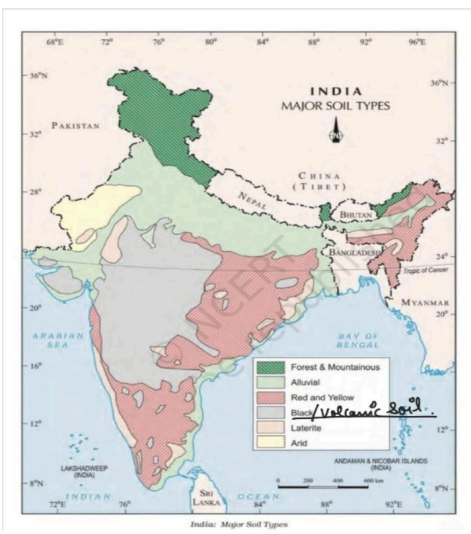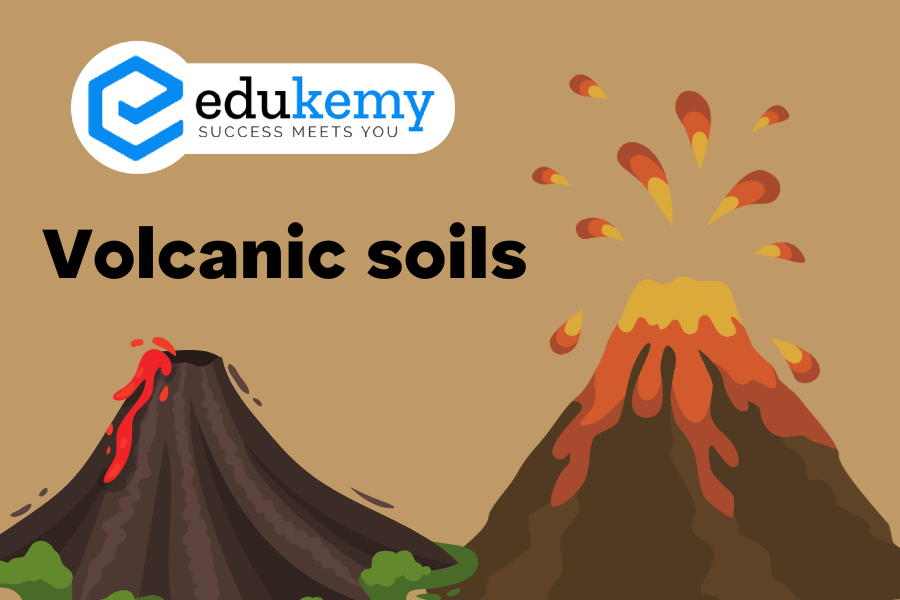
Volcanic soils, formed from the weathering of volcanic rocks, play a pivotal role in the agricultural landscape of India, offering a unique set of characteristics that contribute significantly to the nation’s economy. These fertile soils, found primarily in regions like the Western Ghats, Eastern Ghats, and parts of Northeast India, possess distinct properties that enhance crop productivity and support diverse agricultural practices. The economic significance of volcanic soils in India stems from their ability to foster high-yielding crops, promote agricultural sustainability, and drive rural livelihoods. Understanding the economic implications of these soils is crucial for harnessing their potential and devising effective strategies for agricultural development and economic growth in the country.
Contents
Answer
Introduction:
Volcanic soils, also known as andisols, are formed from the weathering of volcanic rocks and ash. In India, these soils are predominantly found in regions with past or present volcanic activity.

Body:
Economic significance of volcanic soils of India.
- Fertility and Agriculture:
Volcanic soils are highly fertile due to their mineral-rich composition, making them ideal for agriculture.
States like Maharashtra and Andhra Pradesh benefit from these soils, leading to high agricultural productivity. - Crops and Horticulture:
These soils support the cultivation of a variety of crops, including pulses, cereals, and fruits.
For instance, the Deccan plateau’s volcanic soils are crucial for the production of crops like soybeans and grapes. - Tea and Coffee Plantations:
In states like Karnataka and Kerala, volcanic soils contribute to the success of tea and coffee plantations.
The unique characteristics of these soils enhance the flavor and quality of these cash crops. - Mineral Deposits:
Volcanic soils often contain essential minerals like phosphorus, which is vital for plant growth.
This natural enrichment reduces the need for extensive use of fertilizers, benefiting both the environment and the economy. - Biodiversity Support:
The fertility of volcanic soils fosters diverse ecosystems and supports a variety of flora and fauna.
This biodiversity is essential for sustaining ecosystems and has potential applications in pharmaceuticals and other industries. - Tourism and Geotourism:
Volcanic landscapes attract tourists, contributing to the economic growth of regions like the Western Ghats and the Nilgiri Hills.
Geotourism based on volcanic features can generate income through hospitality, guided tours, and related services. - Sustainable Agriculture Practices:
The unique properties of volcanic soils make them suitable for sustainable agriculture practices.
Techniques like organic farming and precision agriculture can be more efficiently implemented on these soils.
Conclusion:
In the future, harnessing the potential of volcanic soils in India will be crucial for sustainable agricultural practices, biodiversity conservation, and economic growth. Continued research and innovative farming methods can further optimize the use of
these soils, ensuring long-term benefits for the nation.
In case you still have your doubts, contact us on 9811333901.
For UPSC Prelims Resources, Click here
For Daily Updates and Study Material:
Join our Telegram Channel – Edukemy for IAS
- 1. Learn through Videos – here
- 2. Be Exam Ready by Practicing Daily MCQs – here
- 3. Daily Newsletter – Get all your Current Affairs Covered – here
- 4. Mains Answer Writing Practice – here

